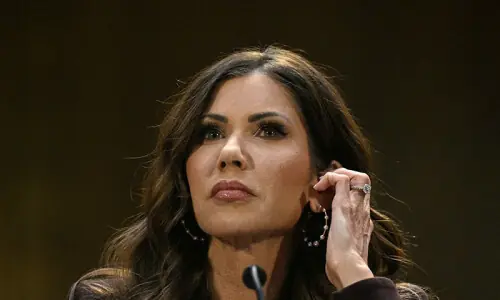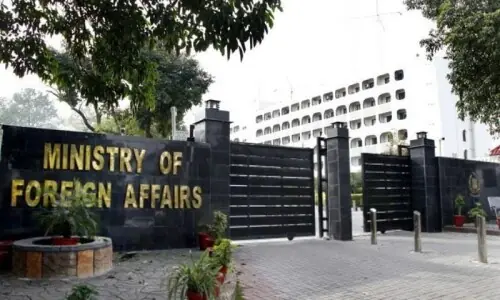MUMBAI Nitin Karani didnt know it at the time but in 2002 he co-edited the last edition of Indias first gay magazine.
Twelve years after the groundbreaking 'Bombay Dost' (Bombay Friends) first hit the streets and despite selling some 5,000 copies every quarter, lack of funding and advertising revenue forced it to close.
But last month, the first edition of the new 'Bombay Dost' was launched at a Mumbai bookstore, with funding from a local mens sexual health charity and the UN Development Programme as well as star backing from a Bollywood actress.
For Karani, the magazines mission remains the same — to help give Indias marginalised gay community its own voice and be more accepted by society.
'The most important thing about the magazine was in the case of people like me,' he told AFP ahead of Sundays International Day Against Homophobia.
'It made me realise I wasnt the only freak around and not isolated, that there are lots of other people like me, not just in India but abroad, and I could reach out to them and interact with them.
'It gave me a tremendous sense of validity.'
'Bombay Dost,' originally set up by the gay rights activist Ashok Row Kavi, seems tame in comparison with its mainstream US or European counterparts.
Where Britains 'Attitude' features pictures of near-naked models and celebrities and sells in the tens of thousands, 'Bombay Dost' has only one shot of 'Mr Gay India' in swimming trunks and an initial print run of 1,500.
Most of its glossy 56 pages are instead taken up with lengthy book and art reviews and features on gay issues both in India and abroad.
But in a country which is still largely conservative and either ignores homosexuality, denies it exists or treats it as a disease, the magazine can justly claim its tagline of being 'bolder than ever.'
In the seven years between publications, Karani said much had changed, even if a British colonial-era law banning unnatural sex 'against the order of nature' is still on the statute books.
The original 'Bombay Dost' was not even sold in bookstores and would either come in a plain, brown envelope or under the counter at roadside vendors.
'People would have been afraid to walk into a store and ask for it in the same way they wouldnt walk into a chemist and ask for a condom. It was basically still contraband,' Karani explained.
The now half-yearly 'Bombay Dost' is still available via mail order or from gay-friendly NGOs but is also sold in a number of large bookstore chains.
Karani said his parents and colleagues in his day job at a large financial services firm know he is gay and are supportive.
Being gay is now more acceptable in certain jobs such as journalism, at call centres or in the entertainment or fashion industries and younger people are more accepting, he added.
The 38-year-old attributes that change in part to globalisation as well as the explosion in Indias cable and satellite television sector, which brought among other things chat shows discussing homosexuality more openly.
Indian editions of the 'Time Out' lifestyle and entertainment magazine now have regular gay listings sections and columns, while numbers at the annual Pride march, first held in Kolkata with just 14 men in 1999, are growing.
Prejudice still remains, though, whether it is through blackmail of closeted homosexuals or persecution of groups such as Indias sizeable transgendered 'hijra' community.
Editor Vikram Phukan writes in the magazine that that there remains fear of being associated with a lifestyle that is still effectively underground and where homosexual sex remains illegal.
Former Miss India turned Bollywood actress Celina Jaitley, one of Indias most outspoken campaigners for gay rights, received hate mail for supporting the relaunch of 'Bombay Dost.'
The 27-year-old said she was saddened by the reaction but is undeterred, hoping that publications such as 'Bombay Dost' will help break down barriers.
'We have to accept differences rather than be afraid of them,' she told AFP. 'Weve got to talk about it. Bring the change within yourself, accept the first person you come across with love.'































